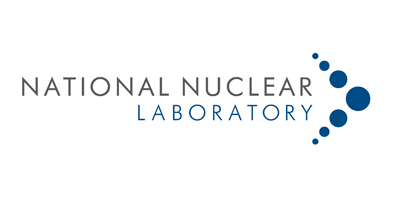The EEC team is based over three sites at Risley, Sellafield and Workington. The team of 28 people has a range of technical backgrounds including Chemistry, Environmental Chemistry, Chemical Engineering, Physics, and Computational Modelling.
The team undertakes the full range of work from desk studies and modelling, to active and inactive laboratory work and running small and medium size rigs.
The EEC team provides support to six areas of work:
- Innovative Decontamination Techniques
- Pond and Silo Chemistry
- Guidance and training on effluent abatement processes
- Design and operation of Effluent Rigs
- Microbial processes on long term storage of nuclear waste
- Environmental Radiochemistry Research
A
- Colloid characterisation, including: concentrations; size distributions; elemental composition; surface potentials; electron microscopy.
- Radionuclide-surface interactions, including: binding to bulk and colloidal surfaces; determination of solid/solution partition; modelling from Kd values and isotherms to surface complexation modelling.
- Testing of effluent treatment media: precipitates/flocs; filtration materials; ion exchangers.
- Development of novel effluent treatment techniques.
- Analysis and characterisation of high activity samples, e.g., Sellafield legacy pond plant samples.
- Development of models for the prediction of effluent behaviour, including: radionuclides; colloids; complexants; decontamination agents.
- Development and testing of decontamination agents/techniques (for surfaces and effluents).
- General behaviour of radionuclides and other toxic species in the Environment.
- Work in support of safety cases for geological disposal facilities.
B
- The capability to design, commission and operate bespoke large-scale test rigs in a non-active facility.
- Development of bespoke equipment for testing and demonstration utilising knowledge of plant and novel technologies.
- Analysis and characterisation of samples (particle science).
- Note the supporting laboratory-based capability with the instruments utilised by this area sits within the particle science technical area.
- Note that the engineering capability (Remote Engineering Team and process operatives) is key to supporting the scientific capability based at the laboratory.
C
- Analysis and screening of novel decontamination techniques suitable for application to the nuclear industry. Requires knowledge of nuclear plant and challenges along with understanding of disposal routes.
- Development of models for the prediction of suitability of decontamination agents.
- The capability to design, commission and operate bespoke equipment in an active facility (this is often done working with external partners).
- Development and testing of decontamination agents/techniques.
Customers: Sellafield (range of departments including FGMSP, SIXEP, MSSS, EARP, HALES, POCO IRT, technical directorate, SWM etc), RWM, LLWR, NDA, Internal IR&D projects (decontamination and environmental radiochemistry themes.
Skills:
Central Lab Team: Inert atmosphere box work, experience and working knowledge of deployment of technology on nuclear plant.
Workington Team: Whilst not currently required specifically at Workington, the skills and knowledge gained are key to the capability being sold at Workington. Other skills experience and working knowledge of deployment of technology on nuclear plant.
Facilities:
- Radiometric equipment (LSC, alpha spec, gamma spec, scaler)
- ICP-MS
- ICP-OES
- ESEM
- Zeta-master
- ion chromatography
- General lab equipment
- Modelling: Speciation modelling (PHREEQC)
- Rheometer
- Laser light scattering particle sizer
- Oven to determine solids concentration
- ELENDES equipment
- Cameras and associated software
Collaborations:
A
We have a very close collaboration with the University of Manchester in this area. Two of the team currently studying for chemistry degree courses at Cumbria university.
B
Currently the CINDe PhDs based at NNL Workington. (Universities of Manchester, Liverpool, Lancaster, Cumbria).
Previously many interactions with University of Leeds and other companies wanting to get into the nuclear market.
C
C tech are close collaborators in this area holding IP for ELENDES and electropickling techniques / apparatus. Again, close collaboration with the University of Manchester.
